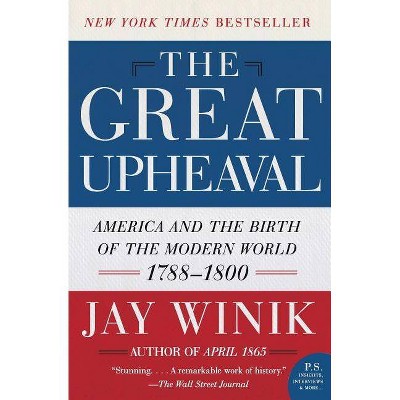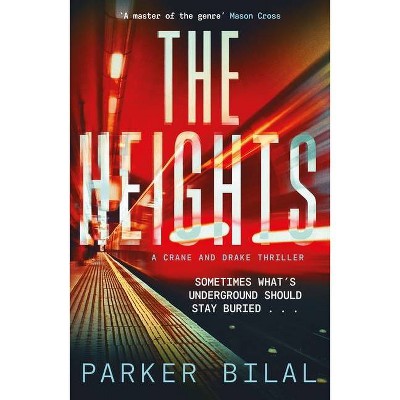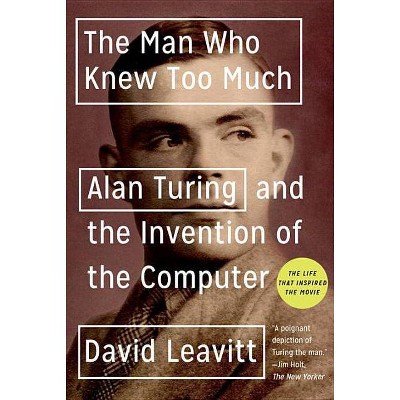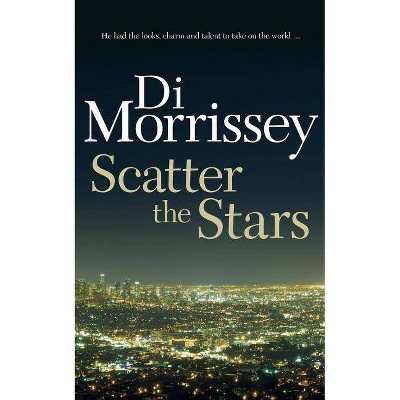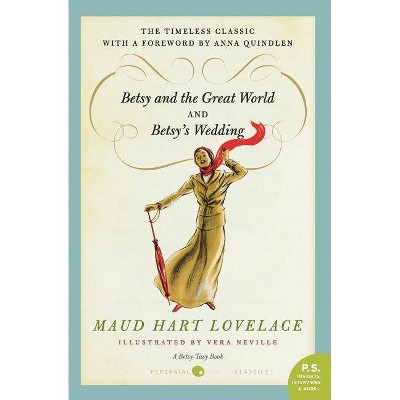The Scatter Here Is Too Great - (P.S. (Paperback)) by Bilal Tanweer (Paperback)
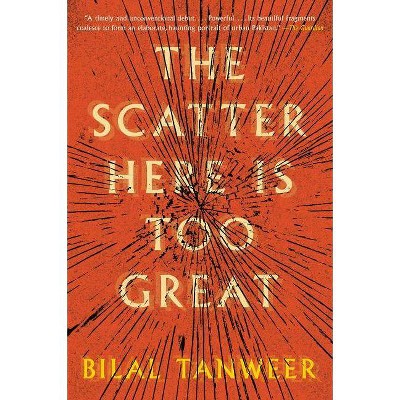
Similar Products
Products of same category from the store
AllProduct info
<p/><br></br><p><b> About the Book </b></p></br></br><P>A vivid and intricate novel-in-stories, The Scatter Here Is Too Great explores the complicated lives of ordinary people whose fates unexpectedly converge after a deadly bomb blast at the Karachi train station: an old communist poet; his wealthy, middle-aged son; a young man caught in an unpleasant, dead-end job; a girl who spins engaging tales to conceal her heartbreak; and a grief-stricken writer, who struggles to make sense of this devastating tragedy.<P>Bilal Tanweer reveals the pain, loneliness, and longing of these characters and celebrates the power of the written word to heal lives and communities plagued by violence. Elegantly weaving together different voices into a striking portrait of a city and its people, The Scatter Here Is Too Great is a tale as vibrant and varied in its characters, passions, and idiosyncrasies as the city itself.<p/><br></br><p><b> Book Synopsis </b></p></br></br><p>A vivid and intricate novel-in-stories, <em>The Scatter Here Is Too Great</em> explores the complicated lives of ordinary people whose fates unexpectedly converge after a deadly bomb blast at the Karachi train station: an old communist poet; his wealthy, middle-aged son; a young man caught in an unpleasant, dead-end job; a girl who spins engaging tales to conceal her heartbreak; and a grief-stricken writer, who struggles to make sense of this devastating tragedy.</p><p>Bilal Tanweer reveals the pain, loneliness, and longing of these characters and celebrates the power of the written word to heal lives and communities plagued by violence. Elegantly weaving together different voices into a striking portrait of a city and its people, <em>The Scatter Here Is Too Great</em> is a tale as vibrant and varied in its characters, passions, and idiosyncrasies as the city itself.</p><p/><br></br><p><b> From the Back Cover </b></p></br></br><p>Winner of the Shakti Bhatt First Book Prize<br />short-listed for the DSC Prize for South Asian Literature</p><p>A fascinating and intricate novel-in-stories, this stunning debut explores the complicated lives of ordinary people whose fates unexpectedly converge after a deadly bomb blast at a train station in Karachi, Pakistan's largest city.</p><p>Comrade Sukhansaz, an old communist poet, is harassed on a bus full of college students minutes before a fatal bomb blast. His son, a wealthy, middle-aged businessman, yearns for his own estranged child. A young man, Sadeq, has a dead-end job snatching cars from people who have defaulted on their bank loans, while his girlfriend spins tales for her young brother to conceal her own heartbreak. An ambulance driver picking up the bodies after the blast has a shocking encounter with two strange-looking men whom nobody else seems to notice. And in the midst of it all, a solitary writer, tormented with grief for his dead father and his decimated city, struggles to find words.</p><p>Elegantly weaving together these voices into a striking portrait of a city and its people, <em>The Scatter Here Is Too Great</em> is a tale as vibrant and varied in its characters, passions, and idiosyncrasies as the city itself.</p><p/><br></br><p><b> Review Quotes </b></p></br></br><br>"<i>The Scatter Here Is Too Great</i> [offers] nuanced characters, rich textures of fragmented experiences, and a distinct writing style. . . . One hell of a good read."--<b>Washington Independent Review of Books</b><br><br>"A beautiful debut, and a blood-soaked love letter to Karachi."--<b>Mohammed Hanif, author of <i>A Case of Exploding Mangoes</i></b><br><br>"A superb and genuinely exciting debut.... He assembles a story of Karachi through lovingly-collected fragments. By the end of this book he had made me see that certain things are more beautiful and valuable for having been broken."--<b>Nadeem Aslam, author of <i>Maps for Lost Lovers</i></b><br><br>"A thoughtful and original book."--<b>New York Journal of Books</b><br><br>"A timely and unconventional debut. . . . Powerful. . . . Its beautiful fragments coalesce to form an elaborate, haunting portrait of urban Pakistan, one that is rich with acute sociological detail and subtle existential contemplation."--<b><i>The Guardian</i></b><br><br>"A vivid picture of a city blown to pieces by years of violence. . . . From his shards of stories he reconstructs a vibrant, hopeful panorama."--<b><i>The Wall Street Journal</i></b><br><br>"An eloquent, moving debut."--<b><i>Booklist</i></b><br><br>"Bilal Tanweer has written a modern love letter -- furious, passionate, playful, and longing -- to Pakistan. And in his brilliant hands it becomes the universal story of home."--<b>Ben Marcus, author of <i>The Flame Alphabet</i></b><br><br>"Bilal Tanweer uses his many gifts as a writer to evoke a Karachi of humor, violence, frustration, love -- and breathtaking stories at every turn. A wonderful debut."--<b>Kamila Shamsie, author of <i>Burnt Shadows</i></b><br><br>"Edgy. . . . Stylish. . . . This poetic novel-in-stories is an invaluable portrait of modern-day Karachi."--<b><i>Publishers Weekly</i></b><br><br>"In one slim volume of interconnected stories Bilal Tanweer creates characters so deftly alive they illuminate the world's strangest and least-charted megacity in all its soiled and yes, hilarious, splendor."--<b>Lorraine Adams, author of <i>Harbor</i></b><br><br>"This is a beautiful, deeply powerful novel. Tanweer is a talented writer who manages with simple, elegant phrases to draw a very touching, humane portrait with real characters that can almost breathe on paper."--<b>Alaa Al Aswany, author of <i>The Yacoubian Building</i></b><br>
Price History
Price Archive shows prices from various stores, lets you see history and find the cheapest. There is no actual sale on the website. For all support, inquiry and suggestion messages communication@pricearchive.us
